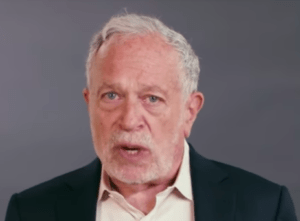The U.N. Needs to Sober Up
An international body immersed in one drug (alcohol) yet telling governments to outlaw an objectively less harmful drug (marijuana) is biting comedy.
The notion of alcohol consumers piously demanding that others stop using pot probably makes you think of the beer-swilling World War II generation berating weed-smoking hippies during the 1960s. Now, thanks to the United Nations, that caricature gets an update — and the hypocrisy is at once amusing and depressing.
You may have read the headline-grabbing news that in advance of its conference on drug policy this week, the U.N. issued a report urging the United States government to block Colorado and Washington state from moving forward with voter-approved laws that allow adult citizens to use marijuana as a less harmful alternative to alcohol. What you may not have heard is that on the very same day the U.N. released that report, U.S. ambassador Joseph Torsella slammed his U.N. colleagues for drinking too much on the job. Apparently, binging at the U.N. is so commonplace and excessive that it is hindering the organization from conducting its most basic work.
As hypocrisy humor goes, this is pretty funny. An international body immersed in one drug (alcohol) yet telling governments to outlaw an objectively less harmful drug (marijuana) is biting comedy. It hilariously exemplifies the double standards and contradictions that still define many global leaders’ views of drugs.
Yet before you laugh too hard, remember that it is actually a tragedy for members of the U.N. to be simultaneously drinking too much alcohol and too much anti-pot Kool-Aid. It is a tragedy because the blatant hypocrisy saps the organization’s credibility on the drug issue at a time when the world needs it to be supporting the international political momentum generated by Colorado and Washington state.
That reform momentum is now building as lawmakers in Mexico, Uruguay and Chile are citing the states’ votes as reason for their nations to consider legislation to legalize marijuana. Likewise, according to the Associated Press, presidents of Mexico, Belize, Honduras and Costa Rica called “for the Organization of American States to study the impact of the Colorado and Washington votes and said the United Nations’ General Assembly should hold a special session” to debate the continued prohibition of marijuana.
Their rationale is simple: Having seen their nations torn apart by the militarized fight against the drug cartels that rely on prohibition and its attendant black market, Latin American leaders see the Colorado and Washington victories as a way to finally start de-escalating the blood-soaked war on marijuana.
“Everyone is asking, ‘What sense does it make to keep up such an intense confrontation, which has cost Mexico so much, by trying to keep this substance from going to a country where it’s already regulated and permitted?'” one Mexican lawmaker told Time magazine in describing a bill he is pushing that is modeled off the Washington State measure.
The flip side, of course, is that legalization could deal a serious blow to the cartels. That’s because, according to Mexico’s Institute for Competitiveness, up to a third of the cartels’ revenues come from the black-market marijuana trade — a trade that would be curtailed if cannabis was legalized and brought into the regulated economy. Meanwhile, if more American states follow Colorado and Washington, the cartels could “lose 24 percent of their gross export revenues,” says Alejandro Hope, a former top intelligence official in Mexico.
Put it all together — thousands dead in a failed drug war, a massive black-market for marijuana and science that says pot is safer than alcohol — and the U.N. should be using its pivotal position to help the world move away from destructive prohibitionist policies and toward legalization and strict regulation.
In order for it to play such a constructive role, though, the U.N. clearly needs to sober up — both literally and politically.
David Sirota is the best-selling author of the books “Hostile Takeover,” “The Uprising” and “Back to Our Future.” Email him at [email protected], follow him on Twitter @davidsirota or visit his website at www.davidsirota.com.
© 2013 CREATORS.COM
Your support is crucial…With an uncertain future and a new administration casting doubt on press freedoms, the danger is clear: The truth is at risk.
Now is the time to give. Your tax-deductible support allows us to dig deeper, delivering fearless investigative reporting and analysis that exposes what’s really happening — without compromise.
Stand with our courageous journalists. Donate today to protect a free press, uphold democracy and unearth untold stories.






You need to be a supporter to comment.
There are currently no responses to this article.
Be the first to respond.